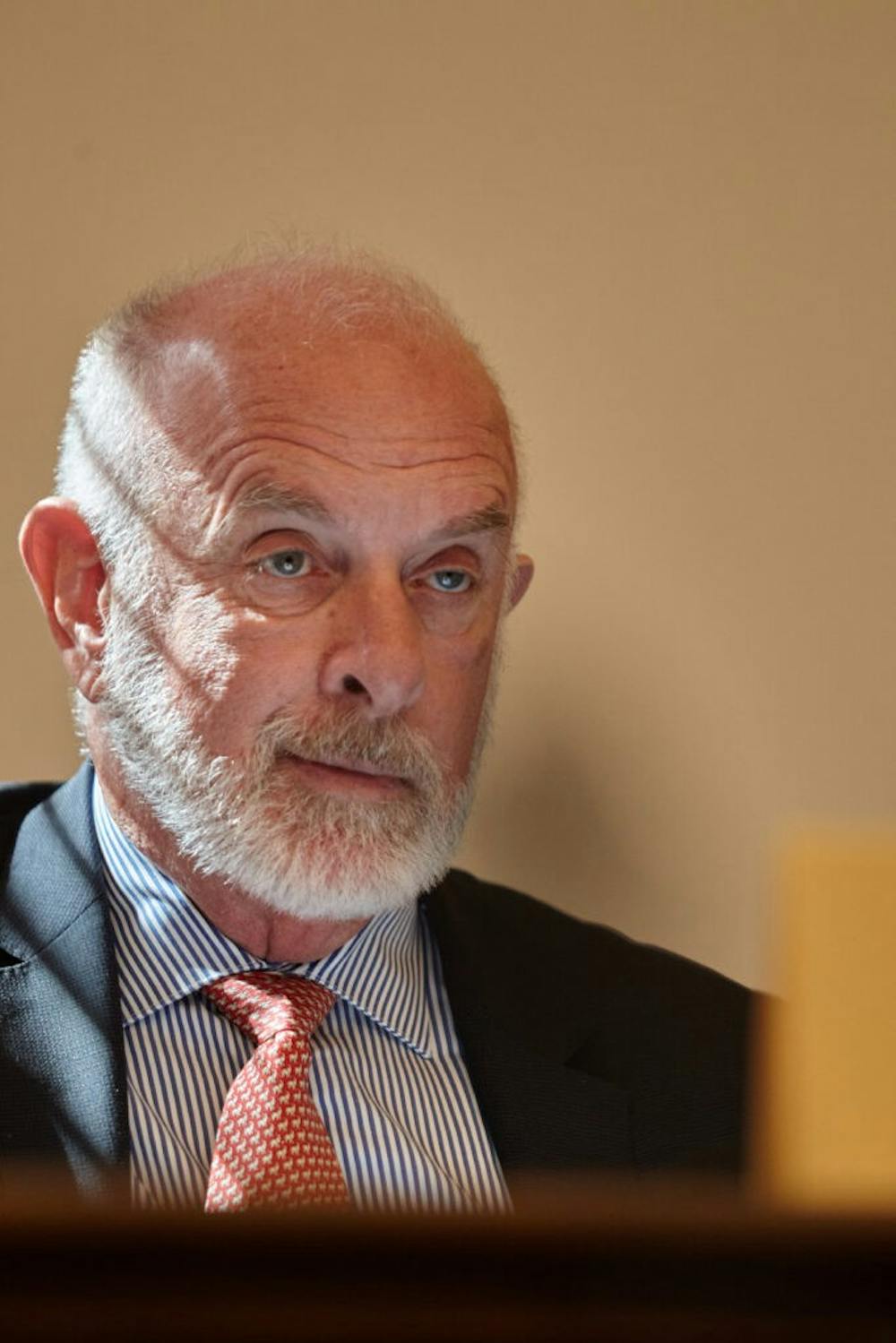By: Whitney Downard
Some state senators are touting the possibility of reinventing Indiana’s tax structure to determine whether the state could eliminate individual and corporate income taxes. They say it’ll take pressure off residents and businesses, but it would also depress future revenue as others say Indiana needs to invest in its quality of life.
Sen. Travis Holdman said last week he planned to introduce, and pass, a bill establishing a Blue Ribbon Commission that would analyze how the state should reorganize its taxes once it fully funds its only outstanding debt: a pension fund for teachers who retired before 1996.

“I think one of the things we can do is take a look at that tax structure we have and what we can do to make a difference for the whole state of Indiana and the taxpayer,” Holdman said at a panel of fiscal leaders Friday.
The pre-1996 teacher retirement fund, which has just over $8.8 billion left in unfunded liability, is expected to be paid off by 2030, freeing up an additional $1 billion in expenditures annually.
Indiana is already in the process of cutting its 3.23% individual income tax rate to 2.9% over seven years following the passage of a bill in the 2022 session. The state also waived its utility receipt tax.
“I think that’s somewhat aggressive but I think we can get there,” Holdman, R-Markle, said. “It’s going to mean there’s less revenue for us to spend at the state level.”
Holdman said it would enable the state to compete for businesses with places such as Tennessee, Florida or Texas, which have no income tax. Holdman chairs the Senate’s powerful Tax and Fiscal Policy Committee and would likely helm any major tax overhaul in that chamber.
Indiana ranks 9th-highest in the Tax Foundation’s 2023 State Business Tax Climate, above both Tennessee and Texas.
But Rep. Greg Porter, D-Indianapolis, cautioned that the state’s tax climate wasn’t what hindered its economic progress, but rather its quality of life.
“We talk about attracting and (retaining) corporations but you’ve got to have the infrastructure, the human infrastructure, to do those jobs to compete with other states,” Porter, also a panelist, said.
The case against more tax cuts
Ball State University economist Mike Hicks pushed back against the proposition. Hicks, another panelist, said that Indiana needed to pivot its focus from continued tax cuts to addressing the “deficit” of public services.
“I think it would be important over the long run to change the focus of the debate about taxes from simply looking at the rates and trying to use the marginal tax rate as a way to attract economic activity,” Hicks said. “It hasn’t worked here; it doesn’t work really anywhere.”

Hicks argued that the state’s workforce, whose college attendance and health lags behind the rest of the nation, turns many potential employers away from the state. Less than half of Hoosiers have an advanced certification or college degree and fewer high school graduates are pursuing higher education.
In a manufacturing intensive state like Indiana, factories long supported Hoosiers without college degrees but soon even those jobs, which are decreasing in number, will soon require some form of advanced training or degree.
Instead, the state should turn to attracting more remote workers, Hicks argued. That population has exploded from 40,000 in 2019 to more than 750,000 today.
“That means there are more remote workers in Indiana than there have ever been factory workers; that’s a third of families who can go anywhere,” Hicks said. “They’re not moving to low tax places, they’re moving to places that have nationally competitive schools, that have quality of life things … It’s really about public services.”
Hicks, a graduate from the University of Tennessee – from the state Holdman wants to emulate — said that even the volunteer state hadn’t figured out how to pay for public services to attract people.
“The quality of public services plays much more into the decision of households to locate someplace,” Hick said. “If you want to be a place that has more people in a decade or two or three, you have to have public services that are at the level people want.”
Cutting taxes jeopardizes revenues
Cris Johnston, the director of the office of management and budget, cautioned lawmakers should ensure the system’s sustainability before cutting revenues.
“You have to figure out what is your sustainable fiscal policy to pay for services,” Johnston said. “We need to have a longer term perspective on meeting all of [our] obligations.”
That state contributed an additional $545 million to the pre-’96 teacher’s retirement fund last year and $2.5 billion this year due to higher-than-expected revenues.
In contrast to the majority of Indiana’s other accounts, that fund was designed to be paid as the state operated, not upfront. That account is nearly 38% funded, while the state’s other defined benefit plans are funded at nearly 90%, on average.
Though Holdman proposed reevaluating the state’s property tax structure as well, following a jump in county assessments due to rising home prices during the pandemic, he cautioned against taking action in 2023 due to the state’s “complicated” property tax structure.
Property taxes, unlike income taxes, are in Indiana’s constitution and will be much more difficult to change.
“We don’t want to be moving too quickly on this without giving it time to settle,” Rep. Hal Slager, R-Schererville, agreed.
The Senate proposal to reevaluate Indiana’s tax system comes as the state explores how to fund public health, higher government employee salaries and continued Medicaid obligation in a slowing economy as the nation approaches a “mild recession” in early 2023.
Legislators convene at the capitol on Jan. 9.





